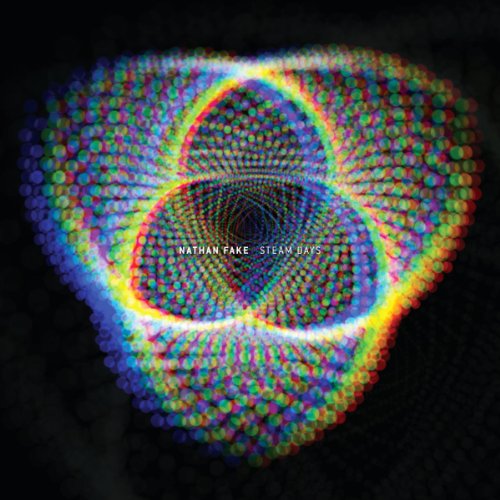
Nathan Fake
Steam Days
Release Date: Aug 27, 2012
Genre(s): Electronic, Club/Dance
Record label: Border Community
Music Critic Score
How the Music Critic Score works
Album Review: Steam Days by Nathan Fake
Very Good, Based on 5 Critics
Based on rating 4.0/5
Border Community's always been kind of reticent and distant as a label, emphasizing quality control of its midnight bliss brand of electronica and off-kilt analogue techno. Still, over the last couple years you'd be excused if you imagined Holden and co. were about to shutter up the shop. As the label approaches its tenth anniversary, its releases have slowed from drip to mere trickle.
Based on rating 3.5/5
For a genre of music whose roots are in the relentlessly futuristic, electronica still manages to be nostalgic for youth – think Boards Of Canada’s snippets of children’s voices or Lemon Jelly’s vinyl crackle. The latest act to travel this path is Nathan Fake, whose new album is perfectly poised between its wistful past and utopian future: plaintive drones evoke hazy childhood memories while the groan of shuffling machinery marches onward. In fact, almost every bleeding-edge beat on this record evokes its pre-digital past.
Based on rating 6.2/10
The last time I thought about Nathan Fake was earlier this year, courtesy of a vaguely unlikely prompt in the form of the Hot Chip single "Flutes". Although a typically direct pop song in the Hot Chip idiom on paper, "Flutes" is a queasy and uneven thing on record, a transformation achieved mainly thanks to its careful use of a sound that I had previously mentally filed under Fake's name in my head. That sound-- a gently keening psychedelic wail, deployed via dial rather than sample trigger-- hallmarked the early Fake single "The Sky Was Pink" and instantly provided him with something not many electronic musicians ever get; an original claim in the ongoing electronic music sound patent wars.
Based on rating 3/5
Oh, that name, which suggests a painfully hip Hoxton ironist. Nathan Fake, though, is the nom de guerre of a precocious Norfolk child raised almost solely on Warp Records: an author of (now) three albums of blithe, fluent post-techno and inventive remixer who Radiohead recently let loose on their The King of Limbs. Midway through Steam Days, Harnser does dark pizzicato things befitting a 90s warehouse rave, while elsewhere, the analogue-melting-into-digital influence of Four Tet is palpable.
Opinion: Excellent
Nathan Fake disappointed a fair number of people with his 2009 mini-album, Hard Islands, the follow-up to his breakout 2005 debut, Drowning in a Sea of Love. Where his kosmische- and IDM-flavoured debut drew favourable comparisons to the likes of M83 and Boards of Canada, which left the schizophrenically beat-driven Hard Islands to raise more questions than answers, Steam Days takes from both to make the most definitive statement yet from the Norfolk producer. The album begins with heavy dance floor beats that persist through much of the album, but they are clearly more evolved than his last effort, more in line with the recent 4/4 work of Four Tet, the ambient techno of Actress and the finest acid of Luke Vibert.

